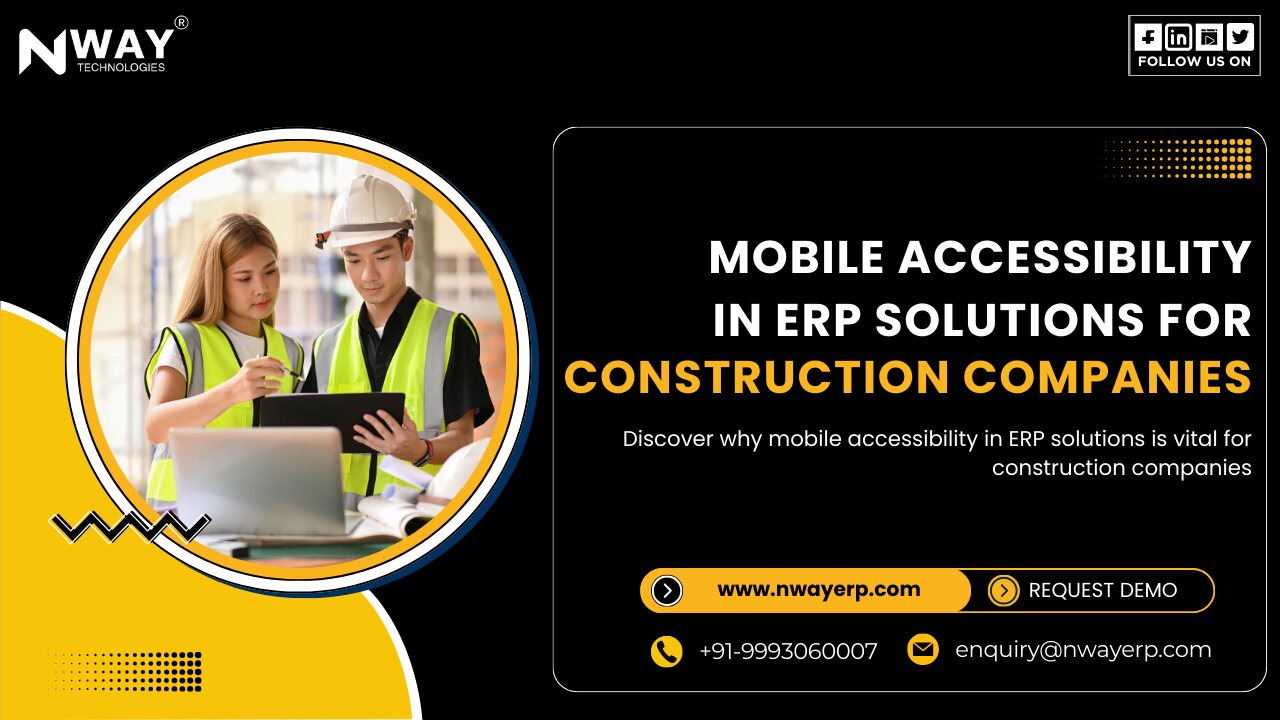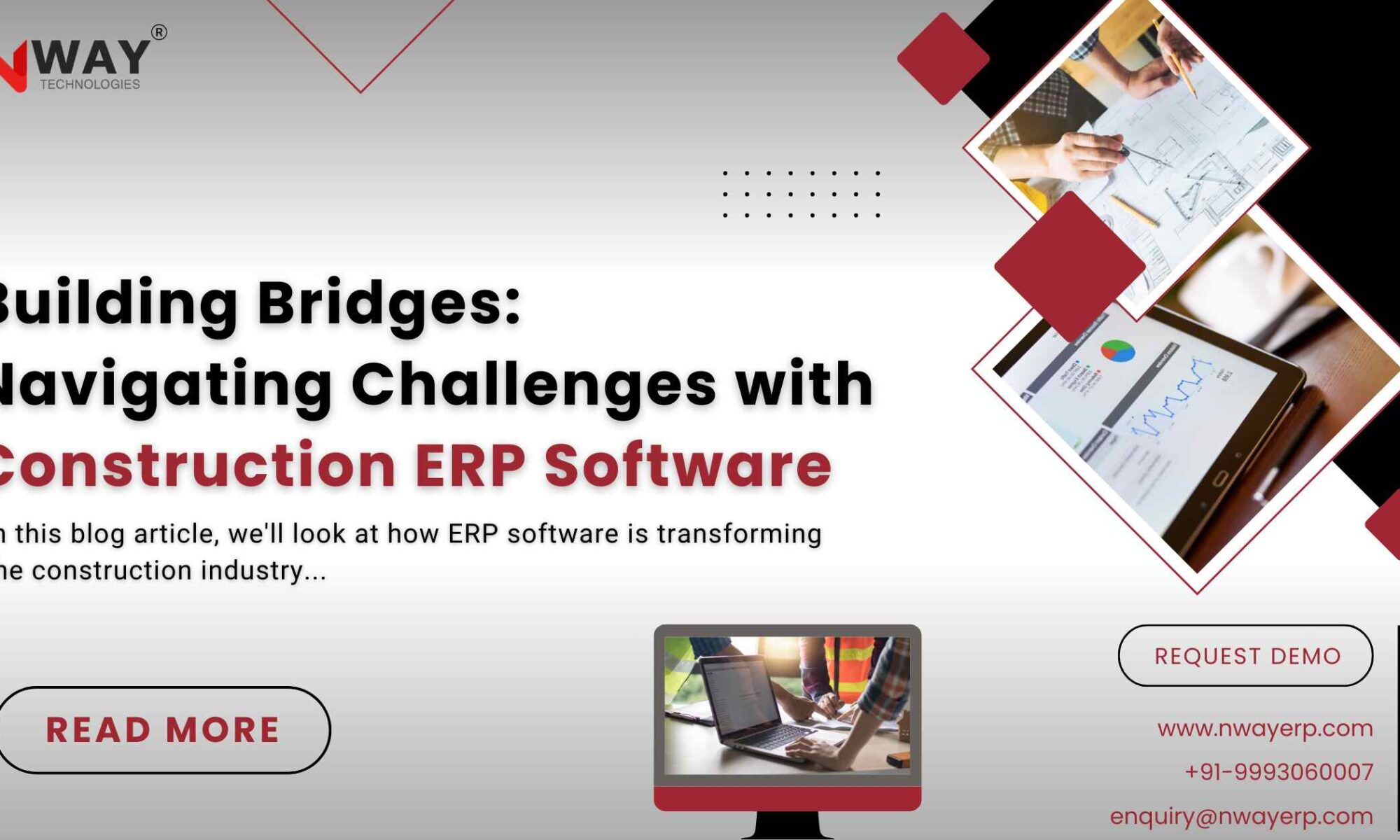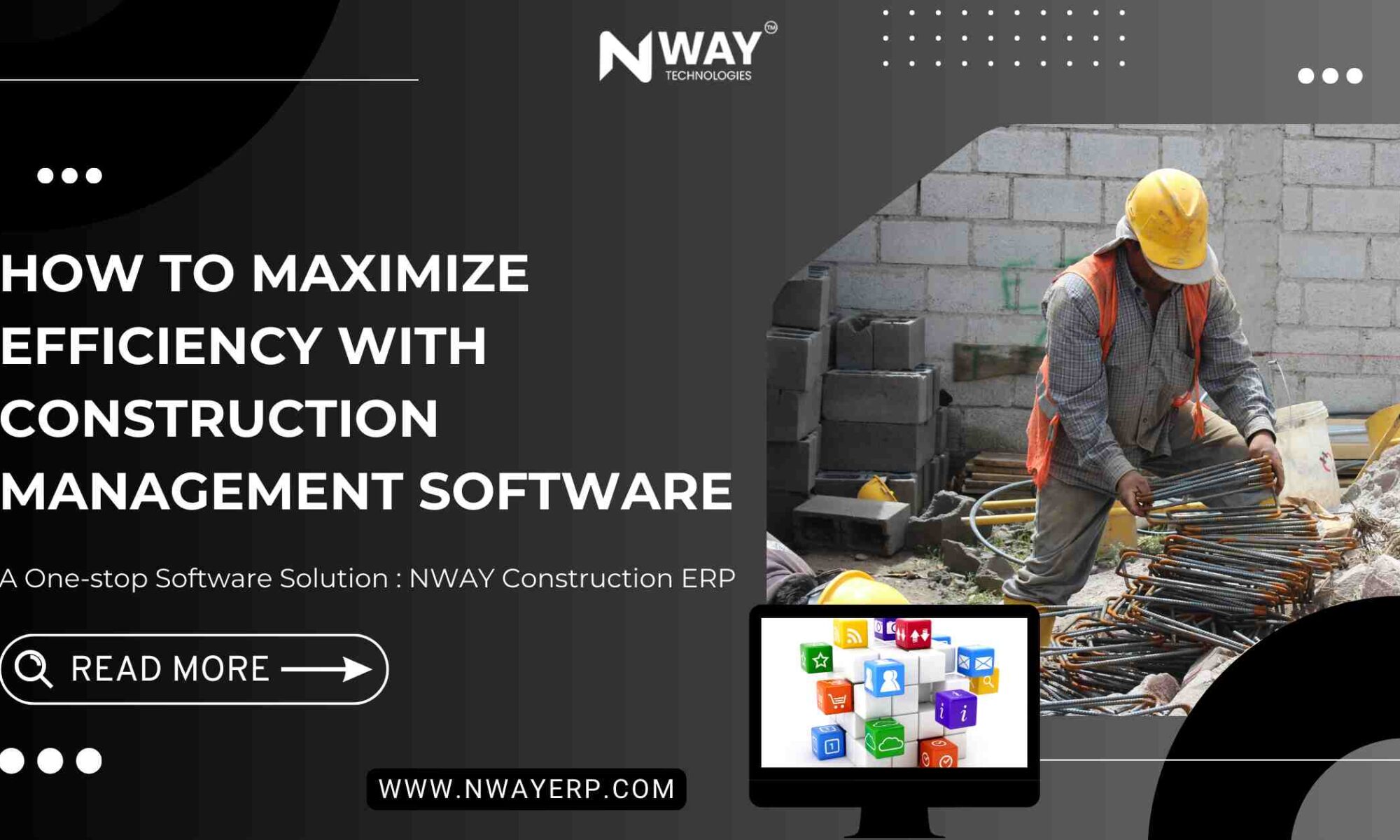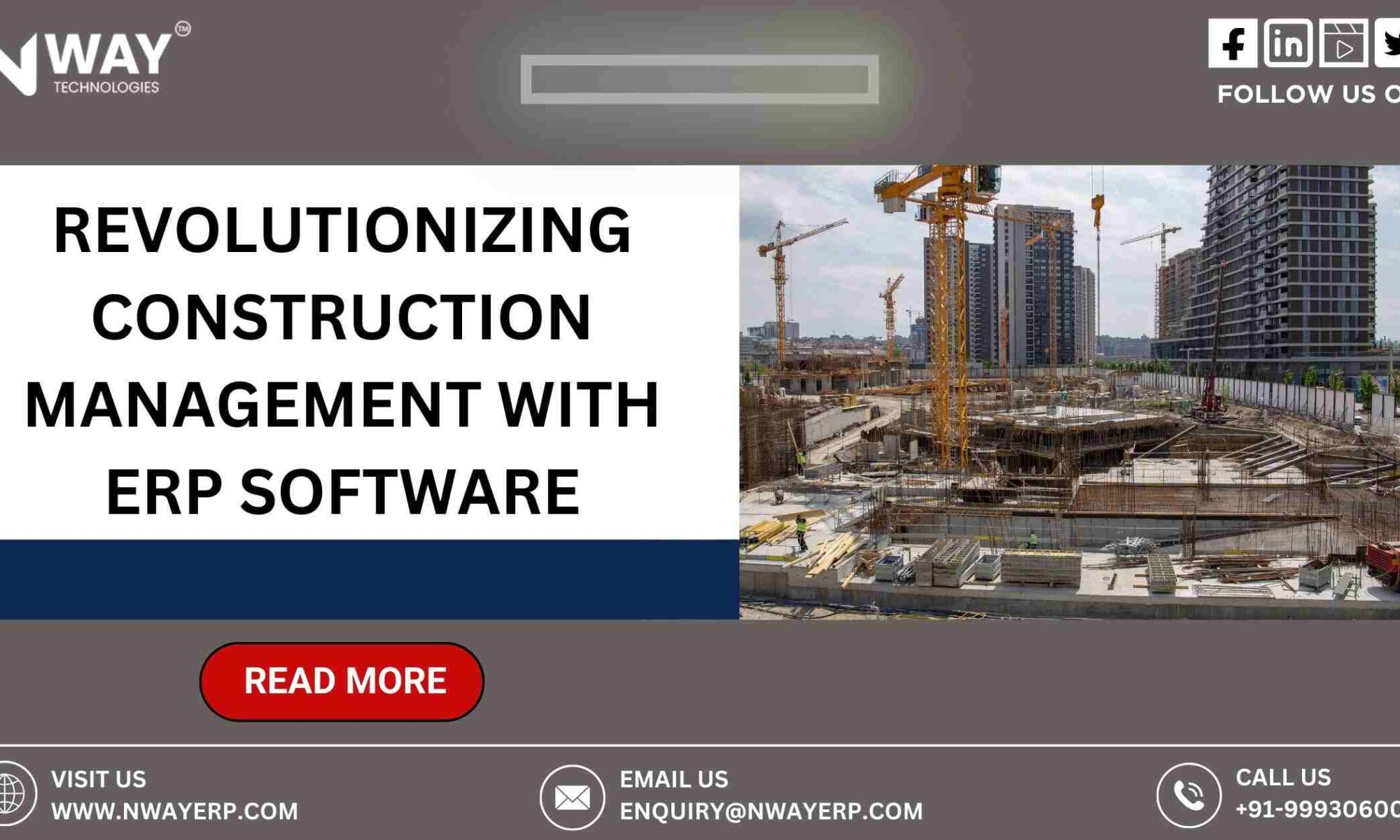Construction is a field which is a dynamic industry and is often distributed across different places. Efficiency, precision and the availability of real-time information is crucial. Integration with Enterprise Resource Planning (ERP) tools has transformed the manner in which construction companies work by providing a central platform to manage finance, resources, as well as operational processes. The true value of ERP solutions can be realized once they’re accessible on mobile devices. This article examines the vital necessity of mobile accessibility to ERP solutions designed for construction firms and how it boosts productivity enhances communication and helps improve project management.
Enhancing On-Site Productivity
- Real-Time Data Access
Construction sites can be a bustling place where quick decisions could dramatically influence project duration and expenses. Access to mobile devices to ERP solutions allows managers on site as well as workers to gain access to real-time information about the schedule of projects, availability of resources and levels of inventory. It is a quick access to ensure that all decisions are made based on the most up-to-date data, which reduces delays while increasing efficiency.
- Streamlined Task Management
Mobile ERP solutions allow construction teams to handle their tasks effectively. Employees can be assigned tasks and update their progress and submit issues from their mobile phones. The streamlined process of communication eliminates the requirement for lengthy documentation and makes sure that everyone is at the same level and can lead to improved coordination as well as faster completion of projects.
Improving Communication and Collaboration
- Instant Communication
Effective communication is vital for the construction industry as teams across the construction industry are required to collaborate in a seamless manner. Mobile ERP tools facilitate immediate communications between workers on site along with project managers as well as office employees. features like instant messaging, push notifications, as well as actual-time updates guarantee that important data is quickly shared to avoid misunderstandings and mistakes.
- Document Sharing and Collaboration
Construction projects are accompanied by a myriad of documents like plans, contracts, as well as permits. Mobile ERP solutions can provide a central platform to store and share the documents. Teams can connect to and share documents at any time, which ensures that everyone is updated with the most current data and decreases the chance of mistakes due to obsolete documents.
Ensuring Better Project Management
- Real-Time Monitoring and Reporting
Managers of project projects need to keep track of how their project is progressing and perform continuously. Accessibility via mobile devices to ERP tools allows them to keep track of project indicators, including spending on resources, budget compliance and time frames all in real-time. It is possible to create and read reports from anywhere which allows them to spot the issues earlier and then take appropriate steps quickly.
- Enhanced Resource Management
Construction projects require careful planning of the resources in order to avoid delay and overruns in cost. Mobile ERP solutions give real-time information on resource usage and availability. Project managers are able to allocate the resources with greater efficiency, making sure that equipment, materials, as well as labor, are efficiently utilized. A better management of resources can lead to savings in costs and efficient execution of projects.
Facilitating Field Data Collection
- Accurate Data Entry
The collection of field data is essential to managing construction projects. Mobile ERP solutions make data entry easier by allowing users to input details directly into the software via their mobile devices. This reduces the chance of mistakes that are caused by manually entering data and guarantees the accuracy of data as quickly as possible.
- Photographic Evidence and Geo tagging
Mobile ERP Software tools allow workers to record photos that document current conditions, progress and problems. Geo tagging capabilities ensure that the images are precisely tied to particular project sites. This is particularly beneficial to document the work completed and identify any potential problems and provide evidence of the work to those involved in the project.
Enhancing Safety and Compliance
- Safety Protocols and Checklists
Safety is the top concern in the construction sector. Mobile ERP solutions may contain safety guidelines and checklists users can download and edit on their smartphones. These devices assure that safety guidelines are adhered to consistently, and risks are detected and promptly addressed.
- Compliance Tracking
Construction companies have to comply with diverse standards and regulations. Mobile ERP tools help to track compliance through immediate access to the regulatory requirements as well as documentation. Employees can ensure that they are in compliance with the regulations while managers are able to create reports that demonstrate compliance with rules.
Increasing Operational Efficiency
- Inventory Management
A well-organized inventory management system is essential in construction projects. Mobile ERP systems provide the ability to monitor inventory levels in real time and allow managers to keep track of the use of equipment and materials accurately. This helps to avoid shortages or overstock situations making sure that the appropriate equipment is available in the event of a need.
- Time Tracking and Payroll
Mobile ERP solutions make time tracking easier and management of payroll. Workers are able to clock into and out on their smartphones, while supervisors can track the cost of labor and attendance in real-time. The streamlined system helps reduce administrative costs and guarantees accuracy and in time.
Driving Innovation and Competitive Advantage
- Embracing Technology
Construction companies are increasingly adopting technology in order to remain competitive. Mobile ERP solutions are an enormous improvement in how construction firms operate. They provide users with tools that allow them to improve and innovate their procedures continuously. Businesses that use mobile ERP solutions can be considered the leaders in their field, that can complete tasks more effectively and at better quality.
- Adapting to Changing Demands
The construction industry is susceptible to evolving demands and changing customer expectations. Mobile ERP systems provide flexibility to adjust to the changing demands quickly. Businesses can quickly respond to customer demands, alter plans for projects as well as implement strategies quickly, making sure that they are able to meet the expectations of clients and remain competitive.
Read More : How ERP Technology is Transforming the Future of Construction Industry
Conclusion
Mobile access to ERP solutions has become a necessity for businesses in construction that wish to improve their efficiency as well as communication and ability to manage their projects. Through enabling access to data in real-time as well as enhancing communication and collaboration and facilitating better management of projects and field data collection as well as ensuring security and compliance, enhancing the efficiency of operations, as well as enabling innovations Mobile ERP solutions offer a complete solution to the specific problems faced by construction companies.
Technology continues to advance as it does, the potential offered by mobile ERP solutions are only going to grow giving construction companies many opportunities to simplify their business processes and gain more results. The adoption of the use of mobile ERP solutions is an important step that could transform how construction firms work and result in increased efficiency, decreased costs and a higher level of customer satisfaction.








